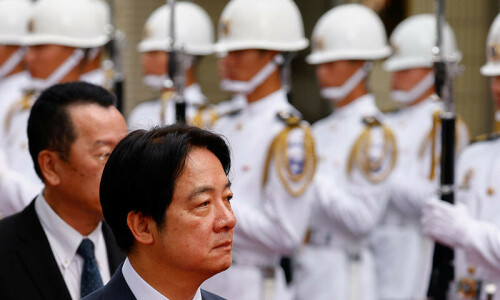Once again, Pakistan has spectacularly failed a basic test of humanity. This one, not on account of frenzied mobs playing judge, jury and executioner but simply because a callous state chose — wilfully and deliberately — not to right an egregious wrong committed against one of its weakest and most disadvantaged citizens.
Aftab Bahadur Masih was a 15-year-old child when he was convicted of murder in 1992, on the basis of a confession allegedly elicited through torture and the evidence of witnesses who have since recanted. After languishing in jail for 23 years, Masih, still protesting his innocence, was hanged in Lahore’s Kot Lakhpat jail on Wednesday.
With Masih’s state-sanctioned murder, Pakistan has shown scant respect for international law that explicitly prohibits the execution of an individual who was a minor when the crime for which he is accused was committed.
Pakistan’s Juvenile Justice System Ordinance 2000 stipulates the same, but the court on June 9 held that it would not apply to Masih as his conviction predated the legislation — a ruling that can only be described as a triumph of technicality over the demands of justice.
Masih’s case illustrates the many flaws in Pakistan’s judicial system where the resources and contacts of the accused often determine guilt or innocence, death or freedom. Indigent accused cannot pay bribes to avoid police torture; they cannot afford to pay for capable lawyers and must instead place their lives in the hands of often less-than-competent and overburdened state counsel; and they cannot afford to pay the blood money that can sometimes buy them the plaintiff’s forgiveness.
One can safely say that those cheering every execution in Pakistan from the sidelines are not likely to ever experience the utter helplessness of being on the wrong side of the justice system here, let alone feel the hangman’s noose tightening around their necks.
Over the last six months, since the horrific APS Peshawar attack in December, Pakistan has sent over 150 death-row prisoners to the gallows.
Although this has damaged the country’s standing in the international community, with representatives of the German government pointing out this week that it could hurt investment prospects in Pakistan, Interior Minister Nisar Ali Khan has stated unequivocally that the executions will continue regardless of global concerns. Significantly, only about 20 of those hanged had been convicted for acts of terrorism, which was the ostensible catalyst for lifting the moratorium.
are the actions of a state content with the mere appearance of justice, with neither the will nor the capacity to address the root causes that underlie terrorism. Instead, it chooses the easy way out to restore the illusion of order and control at the cost of an increasingly brutalised society. The “divine quality of mercy” is in short supply in today’s Pakistan; in its place, a blind, vengeful rage holds this nation in thrall.
Published in Dawn, June 14th, 2015
On a mobile phone? Get the Dawn Mobile App: Apple Store | Google Play










































